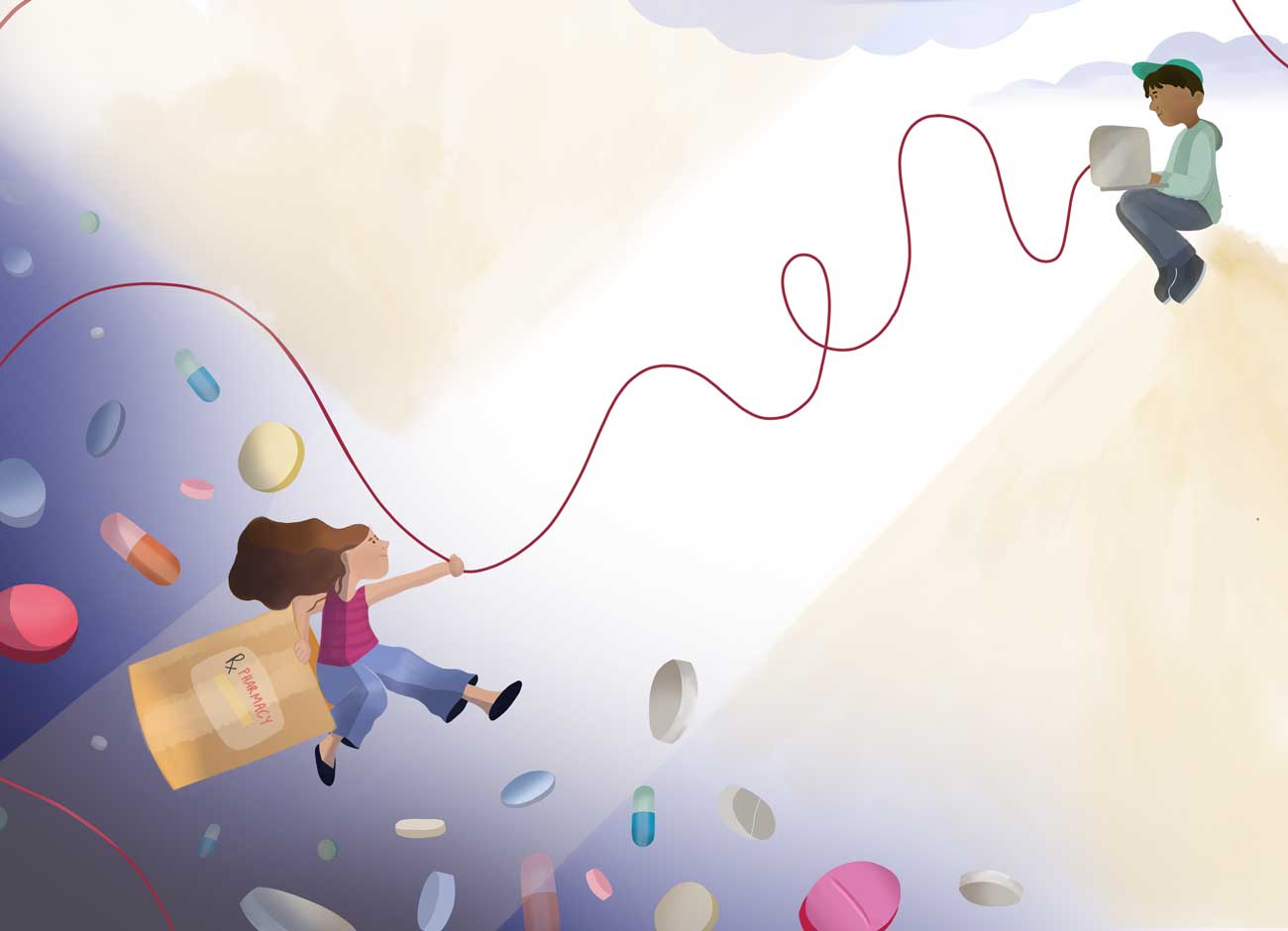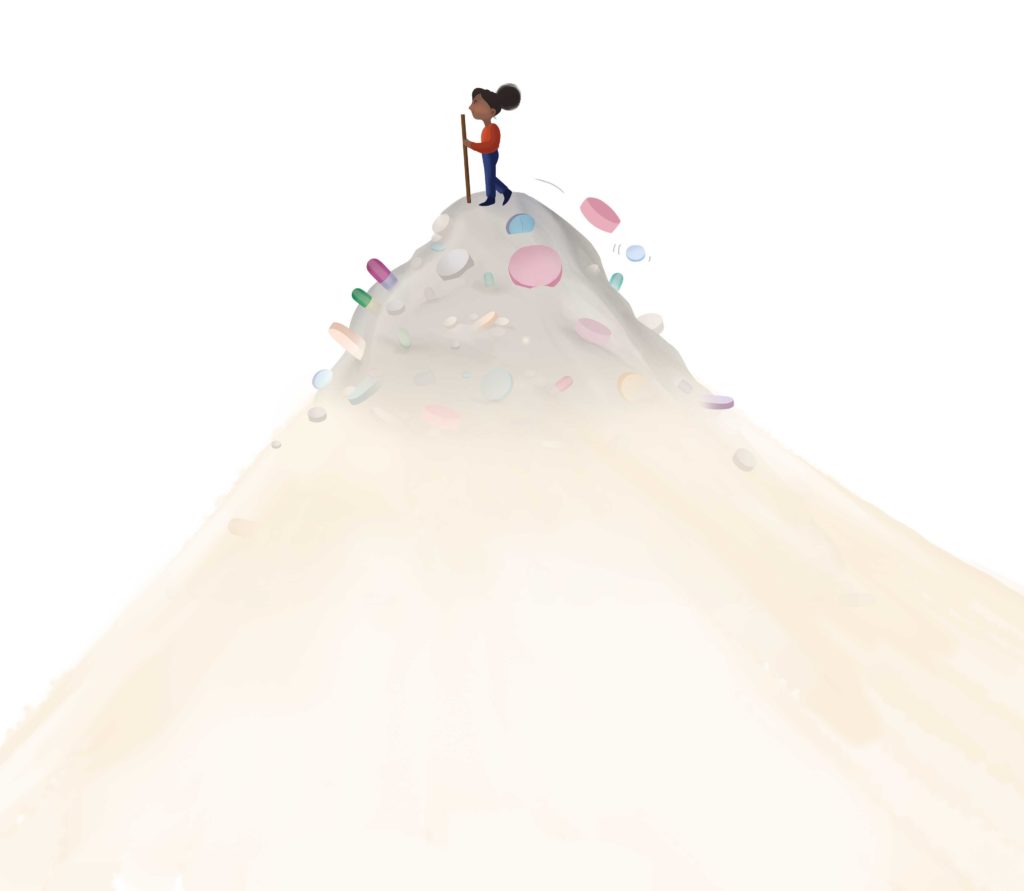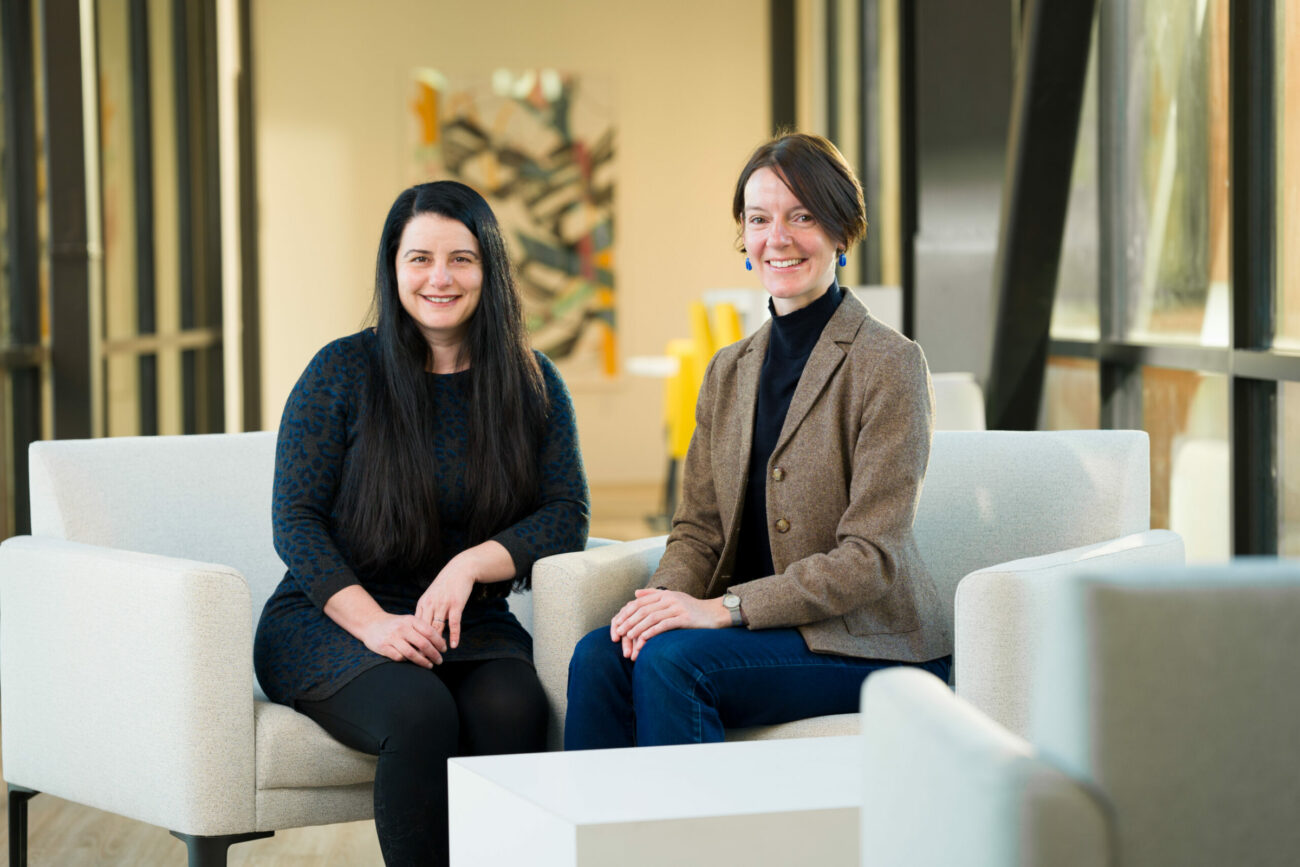A Tale of Two Crises: Opioid Use Disorder and COVID-19

For those who struggle with opioid use disorder (OUD), the COVID-19 pandemic has been a devastating crisis within a crisis.
In addition to the challenges associated with OUD recovery under “normal” circumstance, the fallout from the epidemic has brought on even more complications. Decreased access to treatment, social distancing, isolation, transportation, and other challenges have caused those with OUD to struggle to get the services they need.
Early reporting shows a spike in overdoses since COVID quarantines started, and with it comes the fear that social isolation has and will continue to increase the risks of misuse. Also, many people with
OUD have other pre-existing conditions that put them at higher risk for respiratory symptoms, and some substances can increase the effects of COVID-19, causing a true collision of an epidemic and a pandemic.
There are also mental health aspects that come into play with OUD. The National Center for Health Statistics has conducted surveys since April to track the mental health impacts of COVID-19 on adult Americans. Their findings show that from April 23 to July 21 the percentage of adults with anxiety or depression symptoms was between 33.9 and 40.3%—triple the number of past years. This is exceptionally challenging for those with OUD, because anxiety and depression often co-occur with substance use disorders and can cause additional complications for those in recovery.
Due to the great need for general and mental health information and support, as well as the sharp increase of OUD in Utah, particularly in rural areas, Utah State University Extension launched a program in 2018—the Health Extension: Advocacy, Research & Teaching (HEART) Initiative. The team includes five faculty members with backgrounds including health education, occupational science, and psychology with a specific focus on opioid misuse prevention and treatment education.
The HEART initiative has collaboratively contributed $5 million in grant funding to state and local communities to provide programming and education, emphasizing Narcan (Naloxone Hydrochloride) opioid reversal medication training. Thousands of Utahns have been trained in its use as a safe, temporary reversal for opioid overdose. The opioid crisis has claimed tens of thousands of American lives per year for decades.
“Many realize they have little hope for the future without treatment, yet they experience daily stigma from family, friends, and others related to their past. Unfortunately, COVID-19 has increased their anxiety, depression, and feelings of loss of control over their lives.”
– Tim Keady
“During the past several years, health agencies and coalitions have worked to combat the epidemic by addressing opioid prescribing habits, educating the public about their addictive properties, and improving access to services for those who have a substance use disorder,” says Ashley Yaugher, psychologist, HEART faculty member, and program team lead. “One step in the right direction for Utah was being included in a recent pharmaceutical company settlement since many people were prescribed opioids without a clear understanding of the risks involved. The Purdue Pharma settlement for the overproduction and marketing of opioid prescription medication will hopefully help shed light on the harms of prescription pain medication.”
Yaugher believes this is a big win for Utah to help reduce this public health crisis. In addition, she says HEART has partnered locally and nationally with many organizations providing events and assistance for individuals and families facing what has been called an “opidemic.”
Tim Keady, health educator and HEART faculty member, says one particularly damaging aspect of OUD is the negative stigma associated with it, as people with OUD are frequently marginalized in society and judged because of their condition. This can cause feelings of shame.
“While working with OUD harm reduction groups, clients in our intensive outpatient programs often express how difficult it is to remain in recovery, get a job, and find a place to live,” he says. “Many realize they have little hope for the future without treatment, yet they experience daily stigma from family, friends, and others related to their past. Unfortunately, COVID-19 has increased their anxiety, depression, and feelings of loss of control over their lives.”
Gabriela Murza, HEART faculty member, says that people trying to help may not realize the power their words and actions can have.
“Using person-first language, such as ‘person with OUD’ rather than ‘opioid addict,’ avoiding blame, and having a conversation to encourage treatment and recovery are examples of things we can do to help reduce stigma,” she says. “We can also share our own experiences and the learning we gain from people in recovery.”
Medication-assisted treatments, which combine prescription medications with counseling and behavior therapies, have shown positive results by reducing dependence on pain relievers over time.
“We have seen the skills our clients gain change their lives and provide hope,” Keady says. “For many of them, this is the first time in years they have the ability to make a difference and not be seen as the ‘drug addict,’ but as a real person who has value in society.”

Mersades Morgan, now in recovery, started taking prescribed medications at the age of 16, a pattern that went with her into her young adult years.
“I woke up every day simply existing, in this limbo place between living and dying,” she says. “I knew if I didn’t seek help I was going to die, and I wasn’t ready for that. My story had just started, but it felt like I was drowning each day. I am the mother of two precious babies who needed me to be okay, and I wasn’t.”
When asked what helped her most in working toward recovery, Morgan said connection, connection, connection.
“Substance use disorder (SUD) is not something I could have ever recovered from without others leading the way and showing me human decency and compassion,” she says. “Those who had similar experiences shared the things that helped them. I was lifted up by a community that I didn’t even know existed because addictions and SUD have, unfortunately, become so stigmatized, many people don’t want to acknowledge they are happening.”
Morgan says it’s important for those needing help with OUD or SUD to know that they are not alone. “Reach out, get help, and don’t be ashamed.”
She now works as a full-time certified peer support specialist for the nonprofit organization Utah Support Advocates for Recovery Awareness, which offers mutual aid support groups, family support groups, and one-on-one peer recovery coaching.
“I am now lucky enough that I get the chance to help others,” she says. “SUD may be what you are suffering from, but it is not who you are. The life I get to live today is far more than I could have ever dreamed of.”
Morgan has worked in the treatment field for over two years now and says it’s been interesting to see the effects COVID-19 has had on OUD and those working toward recovery.
“I think COVID has been a double edged sword,” she says. “While it has made it difficult for in-person connection, it has also allowed us to connect virtually with others in recovery across the nation. It has been incredible to see what others in different areas are doing to utilize recovery services, and we are all learning new tools.”
Maren Wright Voss, HEART faculty member with a background in occupational science, agrees.
“With hospitals, health centers, and other social support systems being overwhelmed, online supports have been highly beneficial for people with OUD and other mental health concerns,” she says. “It is important for them to reach out, even during times of physical distancing, to get the resources and support they need through local communities such as coalitions, schools, or other prevention arenas.”
Morgan says connecting with people is key, no matter what your situation, and if other people hadn’t listened and shared, she wouldn’t be where she is today.
“People with OUD are people first—OUD isn’t just for ‘bad’ people and it doesn’t have to define you.”
Ashley Yaugher
A new digital collection featuring stories from people affected by the opioid crisis has been a beneficial tool for treating OUD.
“Informing the National Narrative: Stories of Utah’s Opioid Crisis Digital Collection,” a partnership with USU Libraries, the HEART initiative, and others, is intended to start the conversation about OUD and help people gain insight to address the negative stigma surrounding it. The collection comprises 32 interviews with individuals from nine Utah counties who have a personal connection to the opioid epidemic.
“People with OUD are people first—OUD isn’t just for ‘bad’ people and it doesn’t have to define you,” says Yaugher. “This could be any one of us, and we appreciate these peoples’ bravery as they share and instill hope. Many of their stories are tragic and heartbreaking, but the impetus behind the project is that it will help open the door to understanding that recovery is possible and that there is life in recovery.”
Yaugher emphasizes that we can all make a difference in the lives of our loved ones, friends, neighbors, or colleagues who experience OUD.
“Reach out and offer support in a nonjudgmental way” she says. “Even with a pandemic, people are finding unique and innovative ways to support one another, and it’s been remarkable to watch. Don’t give up, there is hope, treatment works and recovery is absolutely possible.”
Five Ways to Support Someone with Opioid Use Disorder
Reach Out.
Pick up the phone, send a text, or write a letter—which can be particularly helpful so the person can re-read what you said. Feeling stigmatized, marginalized, and cut off is corrosive to a person’s sense of safety and stability. Connection is an essential healing tool for us all. Remember to use person-first language, such as, “person with OUD” rather than “opioid addict;” I sentences, such as, “I have noticed you seem down lately, want to talk?” rather than, “You act like you’re feeling down, why can’t you get it together?”
Share Resources.
Encourage the use of support services and treatment services. Find and share local resources for mental health support, and check out the national resources listed below. When in a difficult time, simply searching for help can feel like an overwhelming task for someone with OUD. Shorten that path by finding help for the person.
Join Local Coalitions.
Many prevention coalitions have moved their meetings online. Find out what is happening locally to support people with substance use disorders and impact public policies.
Carry Naloxone.
Be prepared by learning how to use naloxone (resources below) and keep it with you at all times. If you suspect an overdose, always call 911 before administering it.
Listen to Stories of the Opoid Crisis.
Listen to Stories of the Opioid Crisis. Listening to the experiences of people who have dealt with OUD, either themselves or with a loved one, is an important way to build an understanding. Hearing their stories gives hope that treatment works, recovery is possible, and there are things loved ones can do to help. USU’s Extension Informing the National Narrative, Stop the Opidemic, and CDC Rx Awareness are three helpful resources with real-world stories from this crisis.
By Julene Reese ’88
Additional resources:
SAMHSA: Resources for Families Coping with Mental and Substance Use Disorders






